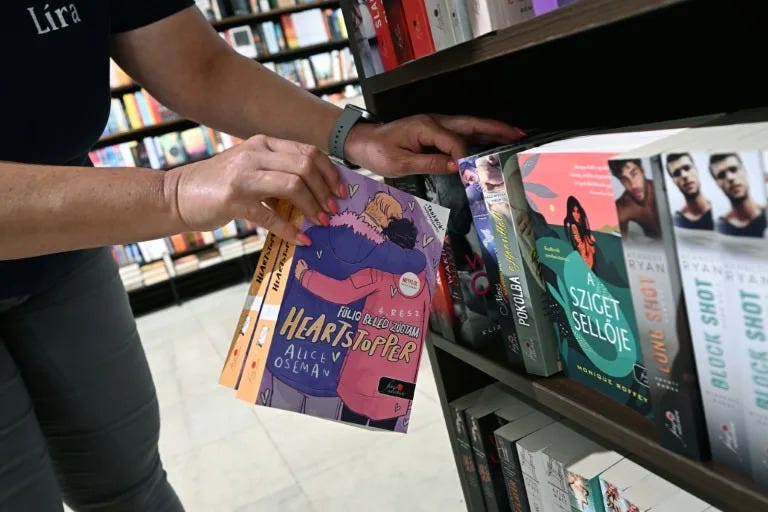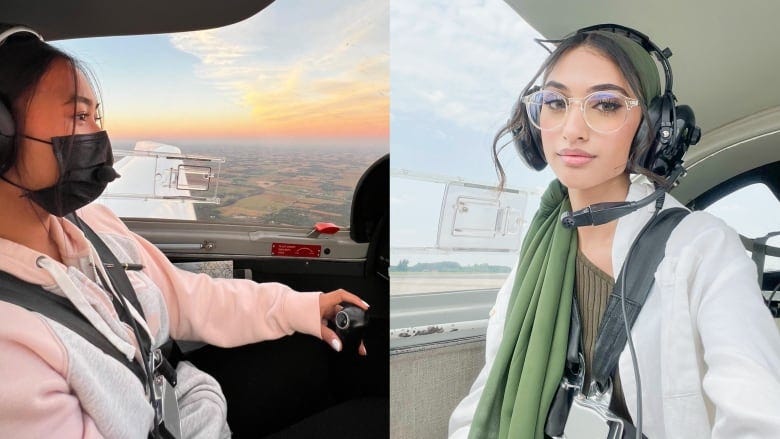Global Roundup: Afghanistan Women Protest, Hungary LGBTQ Community Crackdown, Palestine Women Support Fishermen, Trans Non-Binary Pakistani Muslim Woman, Women Commercial Pilots
Curated by FG Contributor Samiha Hossain
Afghan women stage a protest for their rights at a beauty salon in the Shahr-e-Naw area of Kabul [AFP]
Around 50 women held a rare protest last Wednesday against the Taliban's decision to shut down female beauty parlours and salons. Women shouted "work, bread and justice" while they were gathered in Kabul. Taliban guards responded with water cannons, and some protesters said stun guns were also used against them.
The Taliban have given businesses one month from July 2 to close thousands of beauty salons across the country. The decision further restricts the spaces accessible to Afghan women, who are already barred from classrooms, gyms and parks. More recently, the Taliban also banned them from working for the United Nations. The closure of all beauty salons will lead to the loss of 60,000 jobs, Afghanistan's chamber of commerce said.
Beauty salons were last shut when the Taliban ruled between 1996 and 2001. They stayed open after the Taliban retook power two years ago following the withdrawal of US forces, but shop windows were often covered up and images of women outside salons were spray painted to hide their faces. The Taliban's restrictions on women, which include strict dress codes and limits to them travelling alone, have continued despite international condemnation.
“Don’t take my bread and water,” read a sign carried by one of the protesters on Butcher Street, which boasts a concentration of the capital’s salons.
Today, we arranged this protest to talk and negotiate. But today, no one came to talk to us, to listen to us. They didn’t pay any attention to us and after a while, they dispersed us by aerial firing and water cannon. -a salon worker, whose name has not been published for security reasons.
A report to the UN’s Human Rights Council last month by Richard Bennett, the special rapporteur for Afghanistan, said the plight of women and girls in the country “was among the worst in the world”.
Grave, systematic and institutionalized discrimination against women and girls is at the heart of Taliban ideology and rule, which also gives rise to concerns that they may be responsible for gender apartheid. -Richard Bennett
Beauty parlours mushroomed across Kabul and other Afghan cities in the 20 years that US-led forces occupied the country. They were seen as a safe place to gather and socialise away from men and provided vital business opportunities for women.
We are here for justice We want work, food and freedom. -a protester who identified herself as Farzana.
Hungary bookshop chain Lira has been fined for displaying British novel 'Heartstopper' (ATTILA KISBENEDEK)
Hungary is toughening measures against the LGBTQ community, long a target of Prime Minister Viktor Orban. His nationalist government passed a law against "promoting" homosexuality to minors in 2021 as part of Orban's push to usher in a new "illiberal" era.
So far the law has hardly been enforced but earlier this month, the bookshop chain Lira was fined 12 million forints ($36,000) for selling the graphic novel "Heartstopper" about two boys falling in love in high school. A Netflix series based on the book premiered in 2022, with the second season due to start in August. The authorities said the teen romance by bestselling British author Alice Oseman should have been covered up so young people could not see it. Lira creative director Krisztian Nyary accused the authorities of acting "randomly" and vowed to challenge the "unprecedentedly high" fine.
It's really outrageous that normal books have to be wrapped in an EU state. It sends a message that members of the LGBTQ community should be ashamed. -David Vig, Amnesty's Hungary director
Since 2018, Hungary has been gradually banning gender studies, outlawing people from registering a gender change and banning adoption by same-sex couples. In April, parliament also passed a law encouraging people to anonymously denounce those who "cast doubt" on the "role of marriage and family" to the authorities. It was later withdrawn after an outcry.
Meanwhile, a new government amendment is seeking to exclude transgender women from pension rules that allow women to retire earlier than men. LGBTQ rights group Hatter said the amendment would "worsen the situation for some transgender women, further exacerbating the discrimination and exclusion faced by transgender individuals in Hungary."
Hanan al-Aqraa (L) and Mona Hneideq (R) are among 19 women running the Fishermen’s Wives Seafood Kitchen in Gaza (MEE/Muhammad Hajjar)
Along with 19 other women, Mona Hneideq has opened the Fishermen’s Wives Seafood Kitchen, near the seaport of Deir al-Balah, in the central Gaza Strip in Palestine. There, the women support their husbands, whose work in the fishing industry faces ever tighter restrictions from Israel.
Hneideq decided to support her husband after 14 years of marriage, during which she witnessed him come close to giving up fishing many times.
[My husband] and his fellow fishermen get chased by Israeli gunboats almost every day. The occupation [forces] open fire towards them, threaten to detain them, confiscate their boats and limit the fishing zone regularly. -Mona Hneideq
Although the majority of the 20 women working in the kitchen are wives of fishermen, there are also daughters looking to support their seagoing fathers. Growing up in a family deeply rooted in the fishing industry, Hanan al-Aqraa learned to make seafood recipes from a very young age. The 29-year-old has a degree in English literature. Since her graduation, she has only done work connected to this degree for a couple of months due to the long hours and inadequate pay. The unemployment rate in the blockaded Gaza Strip, which has been described by human rights groups as an “open-air prison”, reached 45 percent at the end of 2022, compared to 13 percent in the West Bank, according to the Palestinian Central Bureau of Statistics (PCBS).
According to fishermen and their wives, the kitchen project, which they started in order to challenge Israel’s restrictions, will still be significantly impacted by the Israeli blockade. The type and quantity of seafood caught in the Mediterranean Sea off the coast of Gaza are affected by the nautical miles allowed by Israel for fishing. When fishermen are allowed to sail out to between 12 and 15 nautical miles, the fish market in the strip thrives; more fish species are available, with more affordable prices for residents.
Picture: Trans Portraits UK / Getty
Qureshi starts off by describing the joy they felt recently as they performed a poem they wrote for the MEHFIL, a London-based arts organisation that spotlights South Asian artists.
I was spinning tales of what Islam means to me, with my queer, hairy, brown, trans woman body, all while talking about my sciencey, nature-nut mind – and they loved me. Not despite it, but because of it. -Jasmine Qureshi
Growing up as a Sunni (one of the sects of Islam), Qureshi saw toxic masculinity and heteronormative roles in the community. They had no idea that the words ‘gay’ or ‘queer’ even existed until the age of 15. When they came out as gay at 18, they say they fell into the “stereotypes of societal gay-ness” which is based on a white gay man. However, this changed when they came out as non-binary a year later.
Being non-binary felt like I could shed the heavy, ill-fitting armour made from the myriad of stereotypes I’d grown up with. It felt like a space for me to distance myself from gender norms, cultural bias and societal pressure and judgement – for just a second to catch my breath – so I could begin to stand up again. -Jasmine Qureshi
Qureshi mentions the important role their chosen family and friends played in supporting them throughout their journey. Though they hated religion for a long time, they have come back to it because it is a significant part of their past.
I went back to religion because it felt comforting and familiar to me. My lack of conformity makes it hard for me to access these communities, but it isn’t because I’m made wrong, it’s because the world I was thrust into was made for singular identities – and that’s wrong. -Jasmine Qureshi
Raven Macalindong, left, and Khansa Ayyaz, right, are students in the Fanshawe Norton Wolf 's Commercial Flight and Aviation Leadership program in London, Ont. (Via CBC.com)
Raven Macalindong and Khansa Ayyaz are two women from different backgrounds, who share the same ambitious dream to take to the skies. They're students at the Fanshawe College Norton Wolf School of Aviation and Aerospace Technology in Canada, studying Commercial Flight and Aviation Leadership. They are among 11 students who recently received scholarships from Women in Aviation International, an organization that helps more women move into leadership positions to advance global aviation and the aerospace industry.
For Ayyaz, she will become the first woman in her family to earn her wings. As a hijabi Muslim, Ayyaz said she's faced her share of pushback over her career ambitions. She even ended a serious relationship because her future mother-in-law wouldn't accept her goals to become a pilot. She hopes becoming a pilot will inspire other women to pursue a career in aviation and credits her late grandma for always encouraging her to become a pilot.
This is like a dream for me. It's my passion and I believe that women should be able to do anything that they put their mind to, especially if it's in aviation. There should be more women being pilots. - Khansa Ayyaz
Macalindong's passion for flying stems from her love of travelling and wanting to give back to her mom, who is a single mom. She said she's planning to bring her mom along on her future flights around the globe, with the goal of making it to her mom's choice of Cape Town, South Africa one day.
Ayyaz and Macalindong are set to graduate next spring and say they one day hope to fly for Emirates or Qatar Airways.
Samiha Hossain (she/her) is a student at the University of Ottawa. She has experience working with survivors of sexual violence in her community, as well as conducting research on gender-based violence. A lot of her time is spent learning about and critically engaging with intersectional feminism, transformative justice and disability justice.
Samiha firmly believes in the power of connecting with people and listening to their stories to create solidarity and heal as a community. She refuses to let anyone thwart her imagination when it comes to envisioning a radically different future full of care webs, nurturance and collective liberation.






